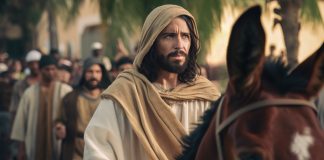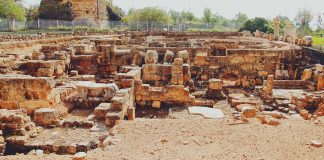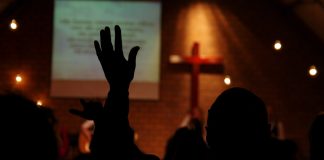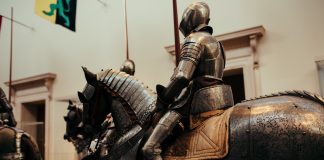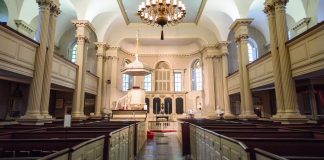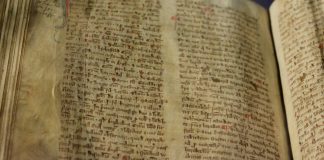The forgotten sign
On May 19th, 1780, a strange phenomenon turned a sunny morning into an unexpected night. The event, known as the Dark Day, was seen as a sign of divine judgment by contemporaries and as a means of ridiculing apocalyptic expectations by sceptics.
The prophecy of the Messiah
Daniel chapter 9 contains what many consider to be the most sublime prophecy of the Old Testament—a prophecy of the Messiah, Jesus Christ. Amazingly, not only did this prophecy reveal the purpose of His incarnation as a child, but it also specified when His ministry would begin and when He would die.
Stones speak to those willing to listen
On May 23, 2012, the Israel Antiquities Authority announced the discovery of a 1.5 cm piece of clay, which represents the oldest extra-biblical attestation of the town of Bethlehem. Eli Shukron, the coordinator of the excavation work, believes that we are dealing with a bulla from the 7th-8th centuries B.C., probably used for sealing a document or object.
The rush for speaking in tongues
“The newest religious sect has started in Los Angeles. Meetings are held in a tumble-down shack on Azusa Street...and the devotees of the weird doctrine... work themselves into a state of mad excitement...They claim to have the ‘gift of tongues’ and to be able to understand the babel”.
Imagine…a world without Christianity
“Imagine there’s no heaven ...” sang John Lennon. “… and no religion too.” The implication is that the world would be a better place without religion. Wrong. Christianity has changed the world in dramatic and positive ways.
They took up the cross and killed
The first eight days of the Council of Clermont were difficult. Although the participants were apparently discussing the reform of the clergy, or the excommunication of King Philip for adultery, the real focus of attention was the announced speech of "general interest" by Pope Urban II. Little did the prelates and important Frankish nobles present know that they were about to witness one...
Is everything God does for our absolute good?
In a world dominated by artificiality and instant gratification, we are becoming masters at controlling our circumstances and environment.
The miracle of my resurrection
By the year 2022, I had not lost anyone close to me, but I had the feeling, as never before, that death was approaching with unexpected speed. The war that was taking place to the east of Romania, and the news that we were in second place in the world in terms of the number of deaths per thousand inhabitants, made me think...
Daniel: on the pedestal of history
On the pedestal of history, holding the flame of freedom—that's how the Book of Daniel has stood since it first appeared, more than 2500 years ago, and how it continues to stand today. It is a divinely inspired introduction to the book of Revelation, and together they represent the extension of the gospel beyond the apostolic generation up until the return of Christ,...
Never forgotten by His heart
The sermons. My mother’s stories. The little sand table and Sabbath School for children. Adults’ conversations about religion. All the information I absorbed in childhood helped me sketch an image of Jesus with one major flaw: it was rendered in far too many shades of grey.
Did Martin Luther really believe in Sola Scriptura?
For ten years Luther read the Bible twice a year. His first Bible was so thoroughly read that he "knew what was on every page and where every passage was found." Martin Luther is the most prominent name among those who brought about the Reformation and took Bible study to a new level.
What did Jesus believe about hell?
In Dante Aligheri's Divine Comedy, written in the early 14th century, hell is described as a "city of woe" and a place of "eternal pain"—metaphors of endless suffering.
The Unitarian Movement | How an unorthodox minority contributed to the development of the Reformation
The Unitarian Movement was defined as a significant minority movement under the influence of Humanism. The name “Unitarians” comes from the belief in one divine Person, a belief also common to Judaism and Islam, as opposed to the doctrine of the Trinity.
Saint Paraskeva: History and mythology
For the crowds gathered around the casket containing the relics of Saint Paraskeva, everything is just dream and faith. Amazingly much faith. There is also something else. There is the hope of a miracle, a miracle that will cure diseases, cover debts, and make life happy.
Thomas Aquinas
One of the surprises of the twentieth century when it comes to religious freedom was Dignitatis Humanae Persona, the first declaration of religious freedom officially promulgated by the Roman Catholic Church in 1965, at the end of the Second Vatican Council.













